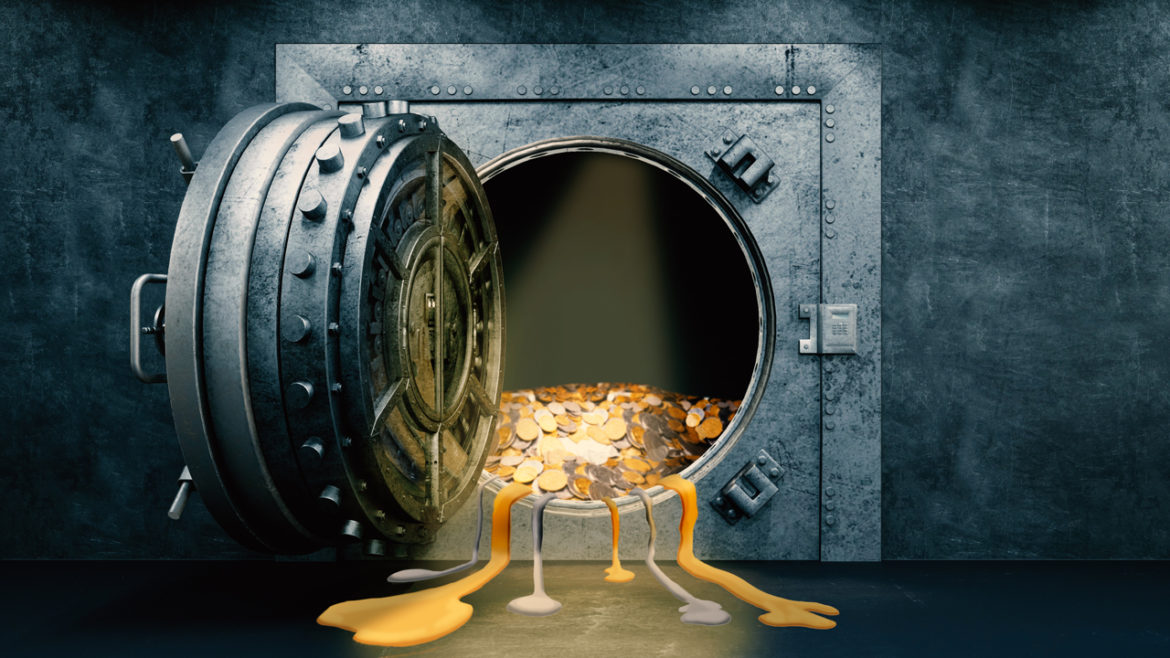Gold has all the potential to go unprecedentedly high. But silver will be gold on
Site:
Precious metals news
The combination of high prices and the end of pandemic relief programs ate into household savings.
Gold prices rebounded on Monday after tumbling to their lowest level in three weeks following Friday's surprising strong jobs report, which helped send...
 Gold Giant Newmont’s $16.9 Billion Bid for Australia’s Newcrest Clouded by Deal Doubts
Gold Giant Newmont’s $16.9 Billion Bid for Australia’s Newcrest Clouded by Deal DoubtsFeb 6, 2023 - 05:51:24 PST
Top gold producer Newmont (NEM) Corp said it had made a $16.9 billion offer for Australian peer Newcrest (NCMGF) Mining to build a global gold behemoth, although investors and analysts said it undervalued the target amid a leadership change.
Three straight days of gains are giving hope to embattled dollar bulls who are looking to a slew of Federal Reserve speakers and rising US-China tensions to extend a nascent rebound.
 Polls Show Record Number Of Americans Worse Off Financially Since Biden Took Office
Polls Show Record Number Of Americans Worse Off Financially Since Biden Took OfficeFeb 6, 2023 - 05:45:47 PST
n other words, Biden has been trying to take credit for the recovery of jobs he originally helped to destroy. Many Democrat run states are still lagging and a return to financial stability has been difficult. Other concerns surround the manner in which labor data is being calculated. Only last year the Philly Fed had to revise and refute White House labor gains and cut over 1 million jobs from their stats in the process. That kind of discrepancy is not normal.
 Perfect Storm for Some Companies: Fewer Interest Deductions, Rising Rates
Perfect Storm for Some Companies: Fewer Interest Deductions, Rising RatesFeb 6, 2023 - 05:41:48 PST
Some U.S. businesses face reduced cash flows and higher tax bills as they are hit by a double whammy of interest-rate hikes and a tax-law change.
Corporate financial health will worsen across the globe this year, failing to gain respite from signs that inflation has peaked and hopes for an economic soft landing, asset manager Janus Henderson said in a report released on Monday. The firm, which manages around $275 billion in assets, expects earnings growth to weaken in 2023, with energy and input costs eroding...
 The US Debt Ceiling Farce Risks Slow-Walking the World Economy Into a Crash
The US Debt Ceiling Farce Risks Slow-Walking the World Economy Into a CrashFeb 6, 2023 - 05:37:56 PST
Most countries – Ireland included – do all they can to avoid defaulting on their debt.
A US debt default would cause a spike in borrowing costs that squeezes American consumers as well as significant harm to the world economy, International Monetary Fund Managing Director Kristalina Georgieva said.
Crude oil could soon swing into a deficit that will make next year a difficult one, Goldman Sachs said, as spare production capacity dwindles and underinvestment threatens future supply.
Shares of Rothschild Co., one of Europe’s oldest investment banks, surged Monday after the firm’s controlling family offered to buy out other shareholders. + Concordia, the family holding company, offered €48 a share for the almost 60% of the stock it doesn’t already own. + That totals €1.44 billion, or about $1.55 billion. + The offer represents a 19% premium over Friday's...
Chinese banks are touting a wide variety of retail lending products as authorities need a pickup in consumer spending to create a more solid foundation for the world’s second largest economy.
Taiwan’s weakening economic outlook could spell the end of a rally for the island’s currency as investors reassess optimistic wagers on China’s reopening and a recovery in global demand for semiconductors.
Activity in fed funds—used by banks and government-backed lenders to exchange cash reserves parked at the Fed—surged throughout the past year when the central bank raised interest rates at the fastest pace in decades.
\The yen fell on the back of a Nikkei report that the Japanese government approached Bank of Japan Deputy Governor Masayoshi Amamiya about succeeding Haruhiko Kuroda at the helm of the central bank.
The Federal Reserve raised short-term interest rates this week by a quarter percentage point, bringing the central bank's benchmark rate to a range of 4.50% and 4.75%. During Jerome Powell's press conference on Wednesday, the Federal Reserve Chairman used terms likeinflation, deflation and disinflation, but what do those terms actually mean for you and your money?
Wall Street equity futures and European stocks slumped as an unexpectedly strong US jobs report raised the prospect of more rate hikes from the Federal Reserve. Concern over US-China geopolitical tensions also weighed on sentiment.
Dell Technologies Inc is cutting about 6,650 jobs, or 5% of its global workforce, as it struggles with a slump in the personal computer market and braces for a potential recession. The move on Monday aligns Dell with a raft of U.S. companies from Goldman Sachs Group Inc to Alphabet Inc that have laid off thousands this year to ride out a demand downturn wrought by high inflation...
Global shares slipped on Monday, after a run of upbeat economic data suggested interest rates will have to rise further and stay higher for longer, while a stronger dollar and political turbulence hit risk-linked assets.
Central banks closed out 2022 with reported net purchases of 28 tons of gold in December. Including large unreported purchases, this brought total central bank gold buying in 2022 to 1,136 tons. It was the highest level of net purchases on record dating back to 1950, and the 13th straight year of net central bank gold purchases.





